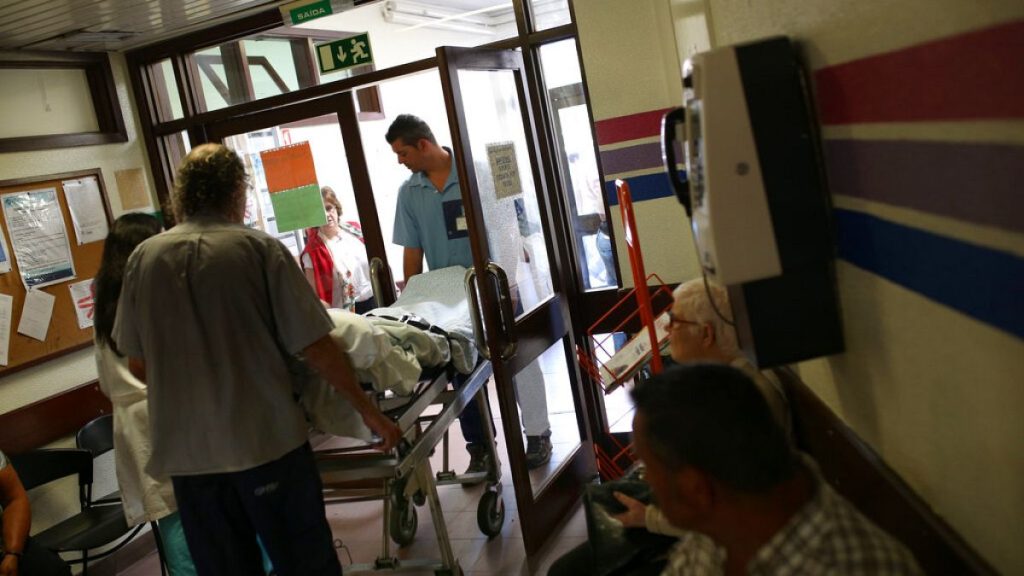The Portuguese National Health Service (SNS) is grappling with a surge in demand for urgent medical care, leading to protracted wait times exceeding nine hours in several hospitals across the country. This crisis, exacerbated by a recent outbreak of highly pathogenic avian influenza (HPAI) H5N1 near Lisbon, has placed immense strain on healthcare resources and personnel, causing significant disruptions to both patient care and emergency services.
The prolonged wait times are particularly acute in Lisbon, the capital city, where hospitals are struggling to cope with the influx of patients seeking urgent medical attention. The Amadora Sintra Hospital, located on the outskirts of Lisbon, reported average wait times of eight hours, while other hospitals in the Lisbon metropolitan area experienced similar delays. Beyond the capital, cities like Coimbra and Portimão also witnessed extended wait times of up to nine hours, highlighting the nationwide scope of the crisis. While local health authorities implemented contingency plans to alleviate the situation, the strain on the healthcare system remains evident.
The surge in demand for medical services is attributed in part to the recent outbreak of H5N1 bird flu near Lisbon. This outbreak, affecting a large poultry farm, has raised concerns about the potential spread of the virus and its impact on both human and animal health. While the primary focus is on containing the outbreak among poultry, the increased demand for medical care underscores the broader implications of such outbreaks on public health infrastructure. The heightened anxiety surrounding the bird flu outbreak, combined with other seasonal illnesses, contributes to the increased burden on hospitals and emergency services.
The impact of these extensive delays extends beyond patients seeking urgent care. Emergency services, such as fire brigades, are also experiencing significant disruptions due to the bottlenecks at hospitals. Ambulances are often tied up for extended periods waiting to offload patients, impacting their ability to respond promptly to other emergencies. This ripple effect highlights the interconnectedness of the healthcare system and the broader consequences of extended wait times. The strain on emergency medical services further underscores the urgent need for effective solutions to address the capacity issues within hospitals.
Compounding the challenges, the Portuguese healthcare system is operating below full capacity. Several emergency services were closed or operating on a limited basis, further restricting access to care and exacerbating the wait times. The closures, primarily concentrated in the Lisbon and Tagus Valley region, underscore the systemic challenges facing the SNS. This reduced capacity highlights the vulnerability of the healthcare system to surges in demand and the need for investment in infrastructure and personnel to ensure adequate preparedness for future emergencies.
Despite these significant challenges, Portuguese health officials maintain that all patients seeking medical attention are eventually receiving treatment. Efforts are underway to increase capacity by opening additional clinics, expanding inpatient beds for respiratory illnesses, and reorganizing patient flow. While these measures aim to alleviate the immediate pressure, long-term solutions are crucial to address the underlying systemic issues and ensure the sustainability of the Portuguese healthcare system. The current crisis underscores the need for comprehensive reforms to strengthen the healthcare infrastructure and workforce, enabling the system to respond effectively to future challenges.

